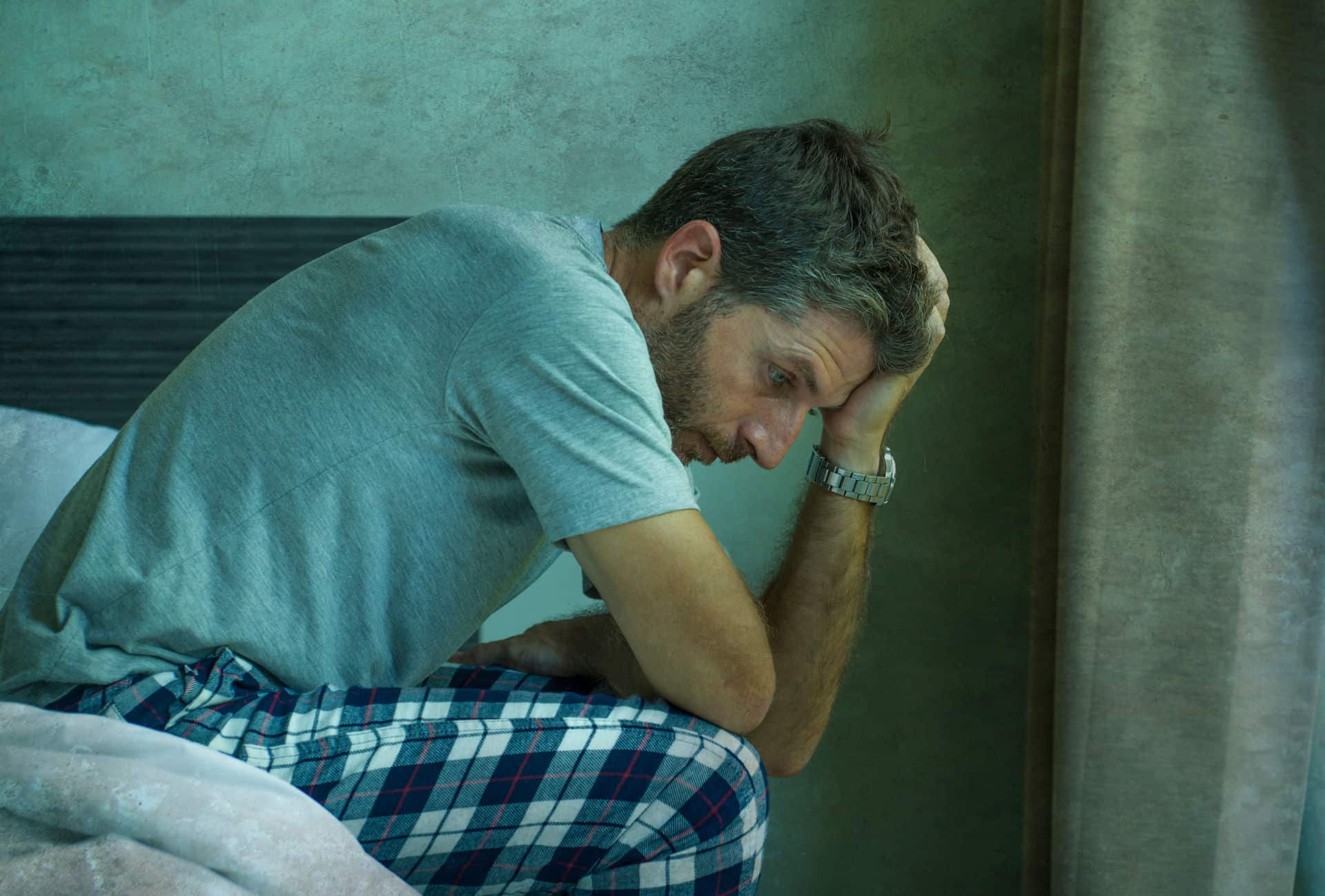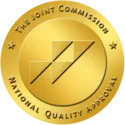Withdrawal is a difficult experience, both physically and psychologically. People often feel helpless when they watch a person suffer through it. If a loved one who has decided to stop using drugs or alcohol is going through withdrawal, it helps to understand what they are experiencing.
At Eagle Creek Ranch Recovery in Nampa, Idaho, we believe that choosing the right treatment options is the foundation of conquering the dangerous cycle of addiction. Here’s our guide for helping someone work through the withdrawal process.
What Is Alcohol or Drug Withdrawal?
Drug or alcohol withdrawal refers to the physical and mental symptoms that occur after reducing or stopping the intake of a substance that one has become dependent on. When someone regularly uses drugs or alcohol, their body can become accustomed to the presence of these substances. If the substance use is suddenly reduced or stopped, the body can react with a range of symptoms as it adjusts to the absence of the substance.
Withdrawal symptoms can vary widely depending on the substance involved, the duration and level of use, and the individual’s health. Common symptoms include:
- Anxiety
- Irritability
- Fatigue
- Nausea
- Sweating
- Tremors
- Seizures or hallucinations (in severe cases)
It’s important for individuals going through withdrawal to seek medical guidance, as some withdrawal symptoms can be life-threatening without proper care.
What Happens To the Body During the Process of Withdrawal?

During the process of withdrawal, your body undergoes several changes as it adjusts to the absence of the substance it has become dependent on. Here’s a general overview of what happens:
- Neurochemical Imbalance: Substances like drugs and alcohol can alter the brain’s chemistry by affecting neurotransmitters. When the substance is removed, the brain struggles to regain balance, which can lead to mood swings, feelings of anxiety, and depression.
- Physical Symptoms: The body may react with a range of physical symptoms such as headaches, nausea, vomiting, muscle aches, and sweating. These symptoms occur as the body detoxifies and attempts to function without drugs or alcohol.
- Autonomic Instability: The autonomic nervous system, which controls involuntary functions like heart rate and digestion, can become unstable. This can result in symptoms like increased heart rate, high blood pressure, and digestive issues.
- Cravings: Intense cravings for the drug are common as the body and brain seek to restore the previous state of balance achieved through substance use.
- Sleep Disturbances: Insomnia or disrupted sleep patterns are frequent during withdrawal as the body adjusts to the absence of the substance that may have influenced sleep.
- Emotional and Psychological Effects: Anxiety, irritability, and depression are common as the brain’s reward system, which was previously stimulated by the substance, is now deprived.
The severity and duration of the withdrawal process can vary based on factors such as the type of substance, the level of dependency, and individual health conditions. It’s crucial to undergo withdrawal under medical supervision, especially for substances with potentially severe withdrawal symptoms, to ensure safety and receive appropriate support.
How Can I Help Someone Going Through Withdrawal?
Supporting someone going through addiction withdrawal can be challenging but incredibly important. Individuals struggling with substance use disorder may need the support of a family member or friend in order to seek professional help or recognize the need to end drug use. Connecting them with a rehab for weed addiction Idaho is one effective way to provide the help they need.
Withdrawal can pose serious health risks, including severe symptoms like seizures or delirium, depending on the drug involved. It’s essential to encourage the person to consult healthcare professionals who can monitor their condition and provide appropriate medications to alleviate symptoms. Medical supervision can significantly reduce the risk of complications and offer a structured plan for medical detox and recovery.
Emotional support is invaluable during withdrawal. Approach the person with empathy and understanding, acknowledging their struggle without casting judgment. Use positive language and reassure them that recovery is possible. By creating an open, trusting dialogue, you can help them feel less isolated and more motivated to continue their recovery journey.
A calm, secure, and supportive environment can help ease the stress of withdrawal. Remove any potential triggers or stressors from their surroundings. Ensure they have access to a comfortable space where they can rest without disturbance. This is extremely helpful with sleep problems related to withdrawal. A stable environment can provide a much-needed sense of peace and security during this challenging time.
Withdrawal can leave a person feeling physically and mentally exhausted. Offering help with everyday tasks like preparing meals, cleaning, and shopping can reduce their stress and allow them to focus on recovery. Ensure they have access to nutritious meals and plenty of fluids, which are vital for supporting their body as it detoxifies.
Promote activities that support physical and mental well-being, such as regular exercise, balanced nutrition, and proper sleep. Physical activity can help reduce stress and improve mood, while a healthy diet and sufficient rest can aid in the body’s recovery process. Encourage them to establish a routine that incorporates these healthy habits.
Understanding the nature of withdrawal and the specific substance involved can enhance your ability to provide support. Educate yourself on the symptoms and challenges associated with withdrawal to better empathize with their experience and anticipate their needs. Being informed also enables you to offer practical advice and solutions tailored to their situation.
Recovery is a complex process that often benefits from professional guidance. Suggest therapy or support groups where they can share their experiences and learn from others who have faced similar challenges. Professional support can offer structured treatment and emotional support, which are critical for long-term recovery.
The path to recovery can be long and fraught with setbacks. Show patience and understanding, recognizing that progress may be slow and non-linear. Celebrate small victories and continue to offer encouragement, even when challenges arise. Your consistent presence can provide a powerful source of motivation and comfort.
Recovery is a process that takes time. Be patient and offer consistent support, even if progress seems slow. Remember, while you can provide support, professional medical and psychological help is essential for someone going through withdrawal.
Why Is Medical Detox Important for Withdrawal?
 There are a few reasons why supervised medical detox is important. It is important for providing the maximum amount of safety for the person undergoing withdrawal. As previously stated, withdrawal can turn dangerous for some people.
There are a few reasons why supervised medical detox is important. It is important for providing the maximum amount of safety for the person undergoing withdrawal. As previously stated, withdrawal can turn dangerous for some people.
As people go through withdrawal, their cravings become stronger. Many who try to detox without medical supervision end up using a substance to alleviate the discomfort and cravings. Some people take a larger dose, which also increases their risk of a dangerous or fatal overdose.
Consistent supervision is important for supportive care. People who stay in a facility to detox have laundry and meal services. Without work and obligations, they can focus on resting and starting the recovery journey. In a facility, people will also have access to therapy, including trauma therapy Idaho, and medical support in case of emergency.
Is It Possible To Prevent Drug Withdrawal From Happening?
Some people try to stop using a substance on their own, and they often stop it completely. For some people, this can be detrimental. If someone has clinical depression and stops using stimulants suddenly, the psychological effects can present self-harm risks. Other unpleasant symptoms can make those feelings worse. Supervision is the best way to reduce these risks and the unpleasantness of withdrawal.
Depending on the substance and other factors, it may not be feasible to prevent all symptoms of withdrawal even with supervision. However, it is possible to prevent or treat several symptoms and reduce potential dangers. Always consult with a medical professional or a treatment facility first. A professional can recommend a plan after learning about individual health needs and addiction history.
Finding the Right Drug Detox Center
When working with a detox center, it helps to find one that also offers addiction treatment. This makes the transition from detox to treatment easier. It is important to find a facility that offers dual diagnosis treatment and supportive therapies. Some people who misuse illegal substances are hesitant to contact treatment facilities because they fear legal trouble. It is important to remember that treatment facilities are only there to help and not to create more trouble.
Detox Safely at Eagle Creek Ranch Recovery
If you are in Idaho and need detox services, Eagle Creek Ranch Recovery is here to help. Our facility is located in Nampa. We have supervised alcohol and drug detox programs. We offer residential and outpatient addiction treatment, individual and group therapy, and dual diagnosis treatment for those facing addiction and a co-occurring mental disorder. To learn more about how to help someone going through withdrawal or treatment options, please contact us.

Clinical Director
Kendall Maloof is the clinical director at Eagle Creek Ranch Recovery. She is a licensed marriage and family therapist and has held multiple leadership roles before settling here at Eagle Creek Ranch Recovery. Kendall received her master’s degree in marriage and family therapy from the Chicago School of Professional Psychology in 2016. Her career in mental and behavioral health began in 2014 when she took up internships in both the nonprofit and for profit sectors. She interned at multiple reputable companies, such as The Living Success Center and 449 Recovery in California.
In 2019, Kendall became the clinical director of Sunsets Recovery for Woman, a dual diagnosis program in southern California. Kendall is a natural leader. She has an incredible ability to problem solve and stay calm in any situation. Kendall never fails to show up when she is needed, and her calm demeanor makes her team and clients feel at ease. Eagle Creek Ranch Recovery is proud to have Kendall as our clinical director.



